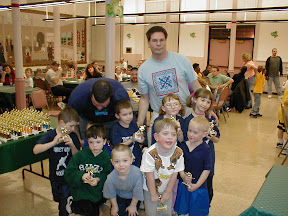Let's be clear about Plan Z vs. Plan C:
Could Plan C Keep Pens In Pittsburgh? - Sports Pittsburgh is going to have to go further than Plan B to keep the Penguins in town.
Pittsburgh is going to have to go further than Plan C to keep the Penguins in Allegheny County.
As the web article and video snip from WPXI reports, the goal is to keep the Pens in "town." Plan Z's (my 'think again' plan) hope is to move the discussions further and inject a sense of long-term health of the team, fans, city, and region by thwarting a move out-of-state and insisting a move occurs from the lower Hill District to elsewhere within Allegheny County.
Bill Peduto's Plan C does offer the team more profits. At least Bill Peduto put a light on this topic. Dan Onorato said that "Delvelopment rights has always been up for negotiations."
Onorato wants to discount what Peduto put on the table and ignore Plan C as a step forward because of three reasons. First, Onorato would be happy to rip off the taxpayers and provide a give-a-way to the Penguins that wasn't disclosed. The more complicated the dealings, the less attention from the media and taxpayers. That's all good for Onorato who is a live-in-the-moment politician and care's little about the long-term ramifications. Peduto's Plan C shines a light on this type of dealmaking that Onorato had up his sleave. Tricks should be out on the table.
I also advocated this 'trick' concerning development rights. It could be injected into the dealings with the Penguins.
More talk about 'development rights' needs to occur in the mainstream media and the past stadium deals on the North Side (of Three Rivers Stadium), existing civic arena site, North Shore (between PNC & Heinz with Pirates and Steelers) and elsewhere in Allegheny County (Hazelwood, old airport site, Neville Island, and even around the new Convention Center).
The number of properties that have been ganged together, the amounts of investments and the public foolery that occurs is outlandish and hardly reported.
The Steelers and Pirates have broken their side of the deals to develop the land around the stadiums on the North Shore. They fumbled their duties. They have let time pass and little has been done. The outdoor concert venue is but one example that did get attention, more than two years ago, when Gov. Rendell promised $4-million in a state grant to get that project done. It isn't done. It's design is bad. Progress has choked. The public interest has been given the shaft in a complicated dealing.
To prove my point, do you know how much land the county owns around the new Greater Pittsburgh Airport? Remember the boom that was to happen in the airport corridor?
New highways have been built. Vacant land sprawls.
Remember the Pittsburgh Motor Speedway fiction? It was to be an indoor Indy oval.
Onorato also wants to discount Peduto's Plan C mentions because of political buddies. Luke Ravenstahl and Dan Onorato are connected at the hip now. This jazz of Plan C gives a wedge and spotlight where they don't want buzz.
Finally, Onorato wants to be the quarterback in this deal and be able to huddle in private. When huddles happen, the main guys turn their backs to the rest of the world.
Don Barden, winner of the lone Pittsburgh slots parlor license, pledged $350-million to Pittsburgh for development of the Hill District. That money goes along in addition to the $7-million per year for 30-years to help finance a new arena in Plan B.
My Plan Z called upon the use of some of Don Barden's pledged money, perhaps $20-million, to be used to acquire the property that is presently owned by Mario and the Penguins. They had purchased a bit of land near the present arena. The one building is getting aesbestos removed now.
Who is paying for that remediation, by the way? I think that it might be the Stadium and Exibition Authority, back-room deal. I'd like to see some journalist / watch dog investigate the letting of that contract.
Buildings will be demolished, of course. Buildings around the arena and the civic arena, to the tune of $7-million. This tear down that Plan A, Plan B, Plan C advocates is NOT a part of my Plan Z. We should keep the Civic Arena. We could even keep the buildings slated for demolition up on the hill if possible.
Years ago my position was to turn five floors of the old hospital into an International Youth Hostel. They let the building rot. Pittsburgh's Hostel in Allentown closed due to weenie board members lack of creativity. It still sits empty I think.
Perhaps a garden, Hostel with its safe warm beds and the lunch program that is already in place at the near by church could do wonders for many people and go a long way to helping to clean up Market Square.
As much as possible, we've got to insist that the Barden investment earmarked for the Hill District go up into the neighborhood. Let's not churn the lower Hill District. Rather, see it flow like an artery all the way into Oakland and Oak Hill. Much of the hill needs a lot of attention.
Consider $350-million. That's enough to build a street car line on Center Ave from the edge of town to Oakland. Sure, you can't run it all the way to the basement of USX, crossing the highway, and avoiding the Hill District until it pops back out again at the Merry-go-round in Schenley Plaza as some would want. But screw them.
Consider a street car line with back and forth service running along the spine of The Hill District with street treatments modest stops, mini shops, vendors, lighted, coffee counter, ajacent bikeway, ramps, occasional footbridge over traffic.
This is the time to allow the entire Hill District to bloosom.
Finally, two additional points before this wrap up to go to a two day swim meet at Pine Richland. Blog postings are needed to dive into the realm of giving away prime property to the Penguins for their profits -- rather than for the overall economy of the city. You don't cut off your nose despite your face.
I think that the Pens should have development rights and a property value upside when they create the investment energy. The windfall isn't theirs to capitalize upon if it is in The Hill District. But, if they made an Olympic Village by the Airport -- then they should get the mega profits and potential that they'd create.
Ororato and Peduto want to give away one of the jewels of the city with their profit windfalls to the Penguins. No. They get it and the public doesn't. We, collective public, lose, there -- forever.
Give them what isn't a jewel now -- and allow them the opportunity to create another. The Pens team is an asset. It can spawn more value for the region if they build elsewhere -- in a bigger, more grand, more diverse setting for our region.
To some, I admit, the civic arena is like a pimple on the landscape of Pittsburgh. But, to others, it is like a birth mark or dimple that makes us unique. The existing arena is there and it can be used as a point of strength.
People, investors, small business and home-owners will want to be near the existing civic arena once the Pens depart from their lease and the uses can be made civic again. The fitness and culture of the Hill Distrct and central city depend upon a wholistic re-use of the public spaces in and around the Civic Arena.







